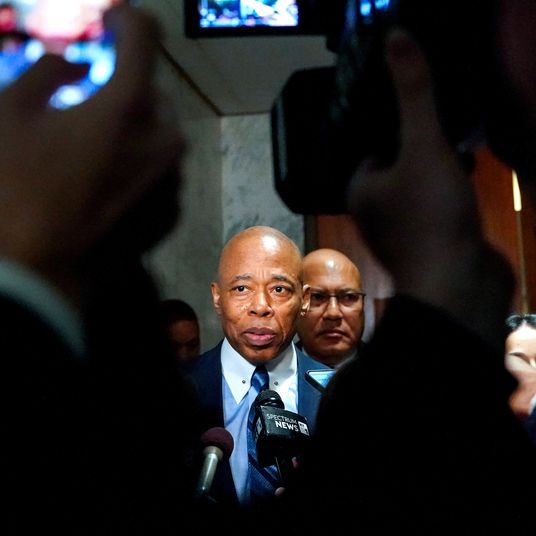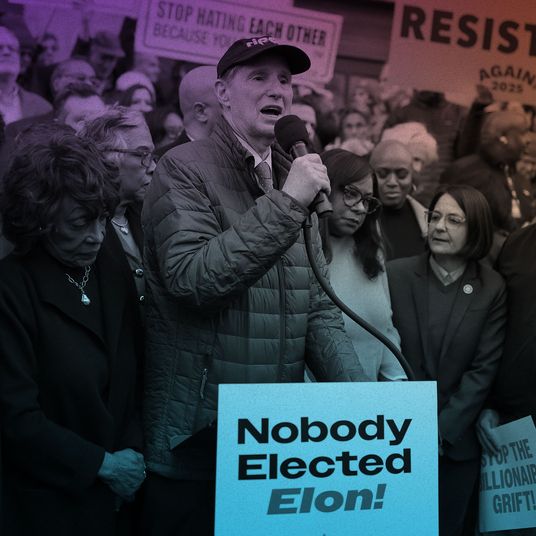
In the lead-up to the U.S. Supreme Court decision in Dobbs v. Jackson Women’s Health Organization, it was widely understood that the elimination of the federal right to abortion would unleash a torrent of state legislative activity on abortion policy, particularly in red states where Republicans are eager to ban abortions. But there’s another arena for abortion policy that’s drawn less attention: state constitutions, and the state courts that interpret them, which could tie the hands of legislators. Voters in at least four states will vote on constitutional amendments this year that either explicitly recognize (California and Vermont) or repudiate (Kansas and Kentucky) abortion rights. The first test will come in Kansas in its August 2 primary; the other three votes will be in November.
A majority of states have simply followed federal constitutional law in this area, which for 49 years protected abortion rights. But in some states, courts have interpreted their own constitutional provisions guaranteeing privacy or personal autonomy as creating a separate state right to abortion in certain circumstances. Now that Dobbs has made state constitutional law governing abortion policy relevant again, anti-abortion activists and their Republican champions are looking for ways to roll back state as well as federal abortion rights. The state constitutional landscape on abortion is complicated, so let’s take a moment to sort it out.
- In recent decades, Kansas has been a hotbed of anti-abortion sentiment. In 2019, the State Supreme Court recognized a right to an abortion as grounded in the “natural rights” contained in the Kansas Constitution, dating back to 1859. The proposed constitutional amendment would overturn that decision and enable the legislature to restrict or ban abortion.
- In Alaska, the State Supreme Court identified abortion rights as protected by state constitutional privacy provisions in 1993 and 1997. But now anti-abortion activists are considering a push for a state constitutional convention (which is on the ballot every ten years in the state) that would overrule the court.
- In Montana, where the State Supreme Court recognized a right to abortion grounded in privacy rights in 1999, anti-abortion forces are hoping for a reversal of state court precedents via fresh litigation.
- In Minnesota, the State Supreme Court decided in 1995 that “the right of privacy under the Minnesota Constitution encompasses a woman’s right to decide to terminate her pregnancy.” The political complexion in Minnesota is not such that an attack on this precedent is currently feasible.
- Florida is potentially a very significant state in terms of the interplay between state constitutional and legislative processes. In 1980, Florida voters approved a state constitutional amendment creating an explicit right to privacy, and in 1989 the Florida Supreme Court recognized a right to abortion as included in this privacy protection. But anti-abortion activists hope that recent appointments to the Court by Republican governor Ron DeSantis might undermine its support for such precedents, and litigation testing recently enacted anti-abortion measures by the Florida legislature is underway.
- The situation in Florida could parallel what happened recently in Iowa, where the State Supreme Court recognized a right to abortion in 2018, but then reversed that ruling on June 17, 2022 after appointments by Republican governor Kim Reynolds reshaped the court.
- Meanwhile, as Jay Michaelson recently reported, abortion-rights activists are in court in Michigan, North Carolina, Ohio, and Utah seeking state constitutional protections for abortion.
- At present there are no states with explicit state constitutional provisions protecting abortion (i.e, not grounded in a more general right), but the November ballot initiatives in California and Vermont would do just that.
- Four red states — Tennessee (in 2014), Alabama (2018), West Virginia (2018), and Louisiana (2020) — have already enacted constitutional amendments explicitly repudiating abortion rights.
So we could increasingly see the kind of polarization in state constitutions that we’ve already seen in state abortion legislation.
The legal maneuvering over state constitutional provisions affecting the legality of abortion should not be confused with the current spasm of litigation challenging state “trigger laws” that sought to ban or restrict abortion the minute the U.S. Supreme Court reversed Roe v. Wade. Generally speaking, these challenges are aimed at the constitutionality of the “trigger” mechanism rather than the underlying abortion restrictions, and if successful, would likely delay rather than stop anti-abortion legislation.
Even if Dobbs took abortion policy out of the federal courts for the foreseeable future, state courts could see a massive expansion of suits and countersuits on the subject, with voters weighing in regularly and state judges becoming highly controversial figures. Republican office-holders and conservative gabbers who have long favored the return of abortion policy to the pre-Roe battleground of state law and politics may not be ready for the wild and dangerous fights that will range far and wide, for a long, long time.
More on life after roe
- ERA Ratification Is Now Up to Trump’s Supreme Court
- The Unlikely Reason RFK Jr. Could Be Rejected by the Senate
- Project 2025’s Mastermind Is Obsessed With Contraception






























